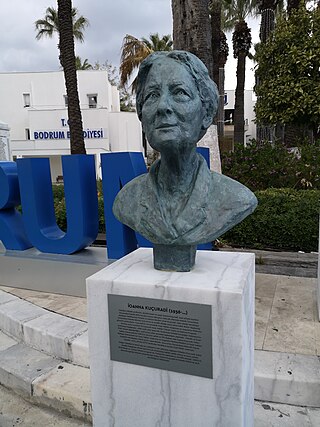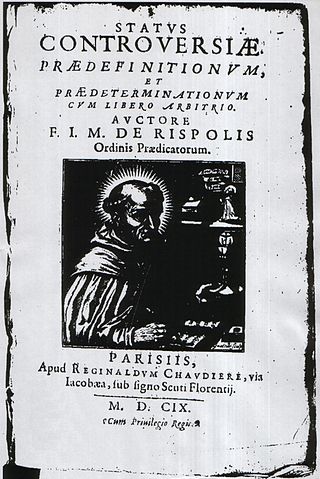
Richard McKay Rorty was an American philosopher. Educated at the University of Chicago and Yale University, he had strong interests and training in both the history of philosophy and in contemporary analytic philosophy. Rorty's academic career included appointments as the Stuart Professor of Philosophy at Princeton University, Kenan Professor of Humanities at the University of Virginia, and Professor of Comparative literature at Stanford University. Among his most influential books are Philosophy and the Mirror of Nature (1979), Consequences of Pragmatism (1982), and Contingency, Irony, and Solidarity (1989).
Philosophy for Children, sometimes abbreviated to P4C, is a movement that aims to teach reasoning and argumentative skills to children. There are also related methods sometimes called "Philosophy for Young People" or "Philosophy for Kids". Often the hope is that this will be a key influential move towards a more democratic form of democracy. However, there is also a long tradition within higher education of developing alternative methods for teaching philosophy both in schools and colleges.
Contemporary philosophy is the present period in the history of Western philosophy beginning at the early 20th century with the increasing professionalization of the discipline and the rise of analytic and continental philosophy.

The American Philosophical Association (APA) is the main professional organization for philosophers in the United States. Founded in 1900, its mission is to promote the exchange of ideas among philosophers, to encourage creative and scholarly activity in philosophy, to facilitate the professional work and teaching of philosophers, and to represent philosophy as a discipline. The APA's governance has included Robert Audi, Jaegwon Kim and Ruth Barcan Marcus.

The Philosophical Society of England (PSE) was founded in 1913 by a group of largely amateur 'philosophers' concerned to provide an alternative to the formal university-based discipline. The society has passed through a series of changes in direction, including a period during which it offered distance-learning courses in philosophy. These courses caused a minor academic tussle in the 1950s over the status of its diplomas of associateship, triggered by an ill-advised attempt to award them to all the then UK university Philosophy Professors an honorary fellowship (FPhS).
Former Iranian president Mohammad Khatami introduced the idea of Dialogue Among Civilizations as a response to Samuel P. Huntington's theory of a Clash of Civilizations. The term was initially used by Austrian philosopher Hans Köchler who in 1972, in a letter to UNESCO, had suggested the idea of an international conference on the "dialogue between different civilizations" and had organized, in 1974, a first international conference on the role of intercultural dialogue with the support and under the auspices of Senegalese President Léopold Sédar Senghor.

Socrates Café are gatherings around the world where people from different backgrounds get together and exchange philosophical perspectives based on their experiences, using the version of the Socratic Method developed by founder Christopher Phillips. The groups model their discussions from the 2001 book of the same name by Christopher Phillips and a guide he also developed. Today, there are hundreds of such gatherings, coordinated by volunteers, worldwide.
The Commonwealth Foundation (CF) is an intergovernmental organisation that was established by the Commonwealth Heads of Government in 1966, a year after its sister organisation, the Commonwealth Secretariat. The Foundation is located at Marlborough House in London, a former royal palace which was assigned for the use of these Commonwealth institutions by Her Majesty Queen Elizabeth II, the former Head of the Commonwealth. As the Commonwealth agency for civil society, the Foundation is funded by 49 member states to support participatory governance through its programmes. The Foundation provides resources, grants and access to platforms to encourage better engagement between civil society and institutions of governance. Membership of the Commonwealth Foundation is voluntary and is separate from membership of the Commonwealth of Nations.

Philosophical Explanations is a 1981 metaphysical, epistemological, and ethical treatise by the philosopher Robert Nozick.
The International Philosophy Olympiad (IPO) is an annual philosophy competition for high school students from around the world, one of the International Science Olympiads. It is organized under the auspices of the International Federation of Philosophical Societies (FISP) and supported by UNESCO.
The International Federation of Philosophical Societies is a world organization for learned societies in philosophy. Its member-societies arguably include every country where there is significant academic work in this field. Members also include philosophical institutions at regional and international levels.

The Philosopher is a long running periodical, established in 1923 by the Philosophical Society of England. Originally in print format, following a split in the mid-2010s the publication now exists in two competing formats.

Café philosophique is a grassroots forum for philosophical discussion, founded by philosopher Marc Sautet in Paris, France, on December 13, 1992.

The European Security and Defence College (ESDC) is an EU body embedded in the External Action Service (EEAS) of the European Union (EU) that provides training and education at EU level in the field of the Common Security and Defence Policy (CSDP), which is part of the EU's Common Foreign and Security Policy (CFSP). The ESDC has limited legal capacity.

The North–South Centre, officially the European Centre for Global Interdependence and Solidarity, is a Partial Agreement of the Council of Europe, the oldest political organisation of European states.

İoanna Kuçuradi is a Turkish philosopher from Istanbul. She is currently the president of Philosophical Society of Turkey and a full-time academic of Maltepe University.

Philosophy in Malta refers to the philosophy of Maltese nationals or those of Maltese descent, whether living in Malta or abroad, whether writing in their native Maltese language or in a foreign language. Though Malta is not more than a tiny European island in the middle of the Mediterranean Sea, for the last six centuries its very small population happened to come in close contact with some of Europe's main political, academic and intellectual movements. Philosophy was among the interests fostered by its academics and intellectuals.

The Berggruen Institute is a Los Angeles-based think tank founded by Nicolas Berggruen.

Culture vs. Copyright: A Diary of a Naïve Philosopher is a philosophical diary by the Ukrainian American scholar Anatoly G. Volynets, published in 2014. It is Volynets' first book, consisting of dialogues among five first graders alternated with the thoughts of their teacher – the Naïve Philosopher of the subtitle – thoughts written in Volynets' own voice. The dialogues explore philosophical, psychological, economical and other aspects of intellectual property in its relations with culture and civilization.

The Latin American Council of Social Sciences (CLACSO) is an international non-governmental institution, created in 1967 from an initiative of UNESCO, an institution in which it has Associative status. Currently, it brings together 680 research centers and postgraduate programs in various fields of the social sciences and humanities, located in 51 countries in Latin America and the Caribbean, as well as in the United States, Africa and Europe. Its headquarters are in Buenos Aires, Argentina. The current executive secretary of the organization is Karina Batthyány.














